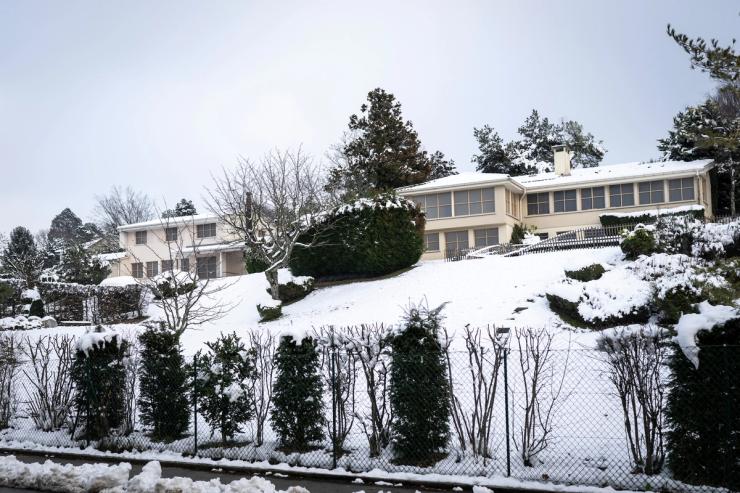The News
Before we sink into what is happening at the World Economic Forum, take a moment to appreciate the stunningly successful media business that is the World Economic Forum.
The WEF’s biggest financial problem these days is too much cash. It’s become a little embarrassing, in fact, for a Swiss non-profit to be sitting on a Scrooge-McDuck pile of Swiss francs that employers are paying to get delegates. Business partnerships begin at CHF 15,000 ($17,600), a spokesman said, and go up to CHF 600,000 ($705,000) for the annual subscriptions that include the right to spend tens of thousands more on tickets, as of 2017.
And so the Forum has been quietly buying some of the world’s most expensive real estate, in this case 300 km west in tony Cologny on the left bank of Lake Geneva.

According to Swiss property records that Semafor reviewed with the help of a reporter for the Swiss magazine Beobachter, Otto Hostettler, the Forum bought two properties on Cologny’s lakeside Chemin de Ruth in 2012 for a combined 24 million francs, adding to its existing compound. Another building, bought more recently in a transaction whose details weren’t immediately available, became its Villa Mundi conference facility. (The purchases have the side benefit of connecting WEF head Klaus Schwab’s home to his office, per the Davos critic Peter Goodman.)
In this article:
Ben’s view
They can afford it. The organization brought in nearly $500 million in revenue in the year ending March of 2023, and had a neat 200 million Swiss francs sitting in cash. Three executives who have studied Davos’s finances closely tell me the WEF would be valued at well over $1 billion as a for-profit company.
“Any surplus is fully reinvested into our initiatives and operations in the service of our mission,” WEF spokesman Yann Zopf said in response to emailed questions.

And competitors in the booming events trade eye Davos with a mixture of wonder and annoyance at its high-minded positioning.
“To replicate what Davos has done in other industries is incredibly difficult,” said Doug Emslie, the founder of the global events business Tarsus, which was sold to Informa for last year for nearly $1 billion. When it comes to the brand, he said, “That Swiss neutrality is very helpful, and the fact that it’s not for profit is very helpful as well.”
Emslie added that he finds the not-for-profit designation confounding: “It’s just bullshit,” he said. “It’s companies that don’t pay tax.”
Given all that — who on the Promenade can begrudge Dr. Schwab for running the thing, well, not quite like any non-profit you’ve ever seen?

To wit: Thirteen of its executives earned more than $500,000 in 2021, the last year for which its U.S. tax returns are available, with Schwab and the Forum’s president, Borge Brende, each earning about $1 million. The report also discloses that “in exceptional situations the chairman, accompanied by his spouse, may be provided with private air travel” for reasons of “security or operational efficiency.”
Notable
- Back in 2000, The Wall Street Journal dug into the relationships Schwab and WEF had with for-profit businesses.

